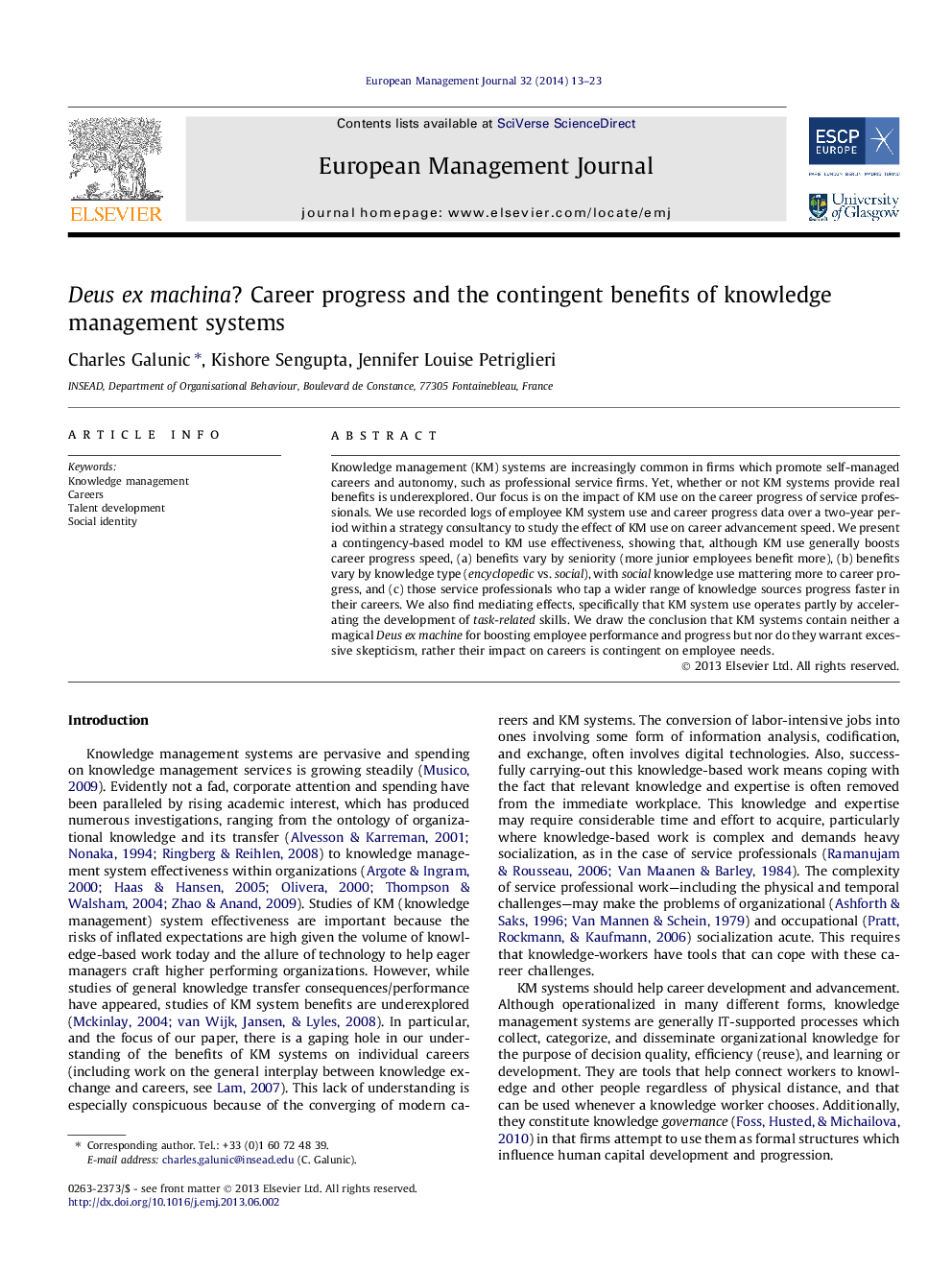| Article ID | Journal | Published Year | Pages | File Type |
|---|---|---|---|---|
| 1014951 | European Management Journal | 2014 | 11 Pages |
•We explore the impact of knowledge management systems on the career progression of service professionals.•Knowledge management use boosts career progression for more junior colleagues, but not for more senior ones.•The use of social knowledge matters more to career progression than encyclopedic knowledge.•Service professionals who use a wider range of knowledge sources progress faster in their careers.
Knowledge management (KM) systems are increasingly common in firms which promote self-managed careers and autonomy, such as professional service firms. Yet, whether or not KM systems provide real benefits is underexplored. Our focus is on the impact of KM use on the career progress of service professionals. We use recorded logs of employee KM system use and career progress data over a two-year period within a strategy consultancy to study the effect of KM use on career advancement speed. We present a contingency-based model to KM use effectiveness, showing that, although KM use generally boosts career progress speed, (a) benefits vary by seniority (more junior employees benefit more), (b) benefits vary by knowledge type (encyclopedic vs. social), with social knowledge use mattering more to career progress, and (c) those service professionals who tap a wider range of knowledge sources progress faster in their careers. We also find mediating effects, specifically that KM system use operates partly by accelerating the development of task-related skills. We draw the conclusion that KM systems contain neither a magical Deus ex machine for boosting employee performance and progress but nor do they warrant excessive skepticism, rather their impact on careers is contingent on employee needs.
